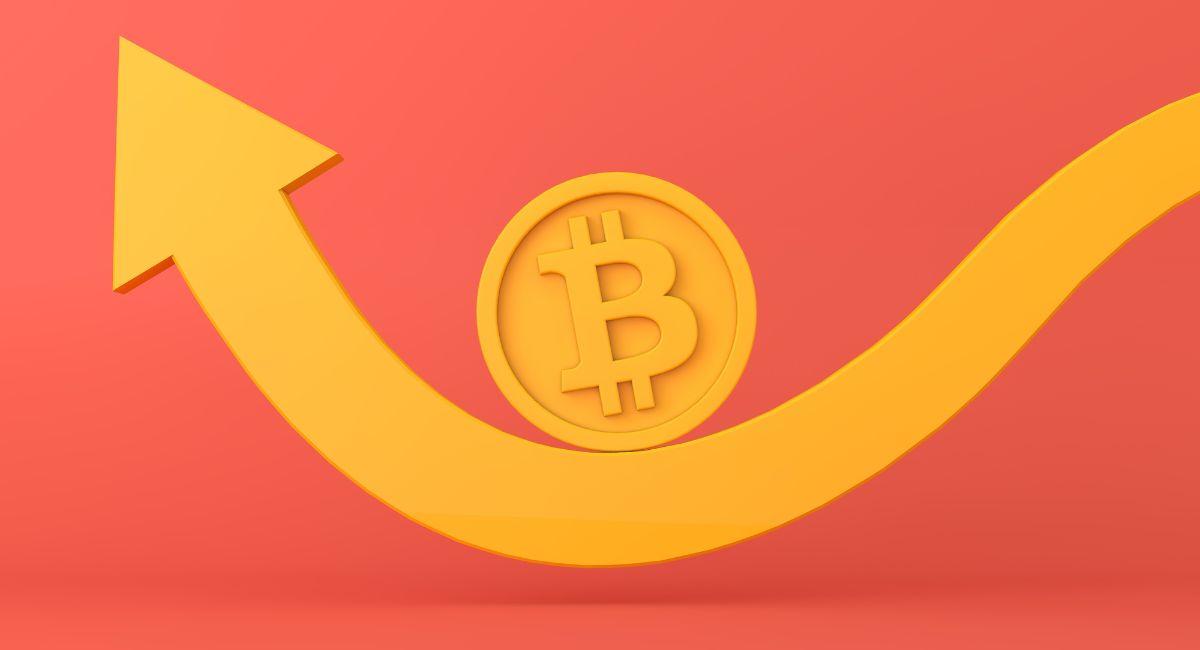Your Ultimate Guide To Zero Fee Bitcoin Ordinals And Its Significance And Potential Impact

In the world of cryptocurrencies, Bitcoin stands as the pioneer and most renowned digital asset. At the core of this blockchain-based financial system lies the concept of Bitcoin transactions, which form the backbone of the entire network. These transactions enable the transfer of value between users, serving as the fundamental building blocks of the decentralized ecosystem. In this article, we will delve into the fascinating realm of Bitcoin transactions, with a particular focus on the relatively recent emergence of zero fee Bitcoin ordinals, shedding light on their significance and potential impact within the cryptocurrency landscape.
Bitcoin transactions are the lifeblood of the Bitcoin network. At their essence, they represent the movement of Bitcoin from one user’s digital wallet to another. These transactions are digitally signed, immutable records that are recorded on the Bitcoin blockchain, a distributed ledger that is maintained by a decentralized network of nodes. Each transaction typically consists of two main components:
- Inputs: Inputs are references to previous transactions or unspent transaction outputs (UTXOs) that a user wishes to spend. In simpler terms, they are like the source of funds.
- Outputs: Outputs are where the Bitcoin is sent. Each output contains the recipient’s address and the amount of Bitcoin to be transferred.
To complete a Bitcoin transaction, a user signs it with their private key, providing cryptographic proof of ownership and authorization to transfer the funds. Once verified by the network, this transaction is added to a block on the blockchain, which is then broadcast to all nodes in the network.
Bitcoin transactions have traditionally been subject to fees, which serve as incentives for miners to include the transaction in the next block. These fees vary depending on factors like network congestion and the size of the transaction in bytes. However, the emergence of zero fee Bitcoin ordinals marks a shift in this paradigm.
Zero fee Bitcoin ordinals, a relatively novel development in the Bitcoin ecosystem, have gained attention for their potential to revolutionize the way Bitcoin transactions are processed. Unlike conventional transactions that require fees to incentivize miners, zero fee ordinals propose a fee-less approach to processing Bitcoin transfers.
These ordinals are a response to the ongoing debate within the Bitcoin community regarding transaction fees. As Bitcoin’s popularity has grown, the network has at times experienced congestion, leading to high fees. This can pose challenges, particularly for microtransactions and remittances. Zero fee ordinals present a new avenue to address this issue, promising a more accessible and cost-effective means of transacting Bitcoin.
Throughout the course of this article, we will explore the concept of zero fee Bitcoin ordinals in depth. We will discuss their mechanics, use cases, advantages, and potential drawbacks. Additionally, we will examine how they are implemented, along with the evolving landscape of Bitcoin transactions.
This article aims to provide a comprehensive understanding of zero fee ordinals and their relevance within the broader cryptocurrency ecosystem. By the end, readers will have a well-rounded knowledge of these innovative transactions, enabling them to make informed decisions about their utilization and potential impact on the world of Bitcoin.
Terra Pool’s Big Bet On Ordinals w/ Sheldon Bennet & Adrian Glover of @dmgblockchain
– What ordinals mean for Bitcoin
– Value of software & zero fee pools
– What’s next for ordinals?https://t.co/UNDrcM9NL1 pic.twitter.com/m9BgnsBg3u— The Mining Pod (@theMiningPod) June 20, 2023
Understanding Bitcoin Transaction Fees

Transaction fees in the Bitcoin network play a pivotal role in ensuring the efficiency and security of transactions. They are payments made by users to incentivize miners to include their transactions in the next block. Miners are essential actors in the Bitcoin network who dedicate computing power to validate and add transactions to the blockchain. Transaction fees serve as a reward for miners, encouraging them to prioritize certain transactions over others.
The key functions of transaction fees in Bitcoin are:
- Incentivizing Miners: Miners have a choice in selecting which transactions to include in a block. Transactions with higher fees are more attractive to miners, as they will earn more for their efforts. Consequently, fees incentivize miners to process transactions promptly and prioritize those with higher fees.
- Preventing Spam and Congestion: Fees act as a barrier to prevent spam and congestion on the network. Without fees, malicious actors could flood the network with low-value or bogus transactions, causing bottlenecks and delaying legitimate transactions.
- Ensuring Network Security: Transaction fees are a key component of the network’s security model. As miners are compensated through fees, they have a vested interest in maintaining the integrity of the blockchain.
Factors Affecting Transaction Fees
Transaction fees are not fixed and can vary widely based on several factors. Understanding these variables is crucial for users to determine an appropriate fee for their Bitcoin transactions. The primary factors affecting transaction fees include:
- Network Congestion: During periods of high demand, the network can become congested, resulting in a surge in transaction fees. Users may need to pay higher fees to have their transactions processed promptly.
- Transaction Size: The size of a transaction in bytes significantly impacts the fee. Larger transactions with more inputs and outputs require more data to be stored on the blockchain, thus incurring higher fees.
- Urgency: Users can choose the urgency of their transactions by selecting the fee rate. Faster confirmation times typically require higher fees, while lower fees may result in slower processing times.
- Market Dynamics: Transaction fees are also influenced by market forces. They can fluctuate based on supply and demand for block space, which in turn affects the fee rates.
Challenges Posed by High Fees
High transaction fees in the Bitcoin network have been a subject of concern for users and the broader cryptocurrency community. These challenges include:
- Inaccessibility: High fees can make Bitcoin transactions costly, particularly for smaller transfers. This hinders Bitcoin’s utility for microtransactions and day-to-day usage.
- Remittances: Bitcoin is often seen as a potential solution for cross-border remittances, but high fees can make it less competitive compared to traditional remittance services.
- User Experience: Excessive fees can deter new users and reduce the overall appeal of Bitcoin. It’s essential for Bitcoin to remain accessible to a wide range of users.
- Network Saturation: Over time, high fees may lead to network congestion, slowing down transaction confirmations and affecting the overall efficiency of the network.
Now, let’s delve into zero fee Bitcoin ordinals:
What Are Zero Fee Bitcoin Ordinals?

Zero fee Bitcoin ordinals represent a novel approach to Bitcoin transactions that propose the removal of transaction fees. In essence, they aim to facilitate fee-less transfers of Bitcoin. These ordinals rely on innovative techniques and technologies to achieve this goal.
How They Work in the Bitcoin Network
Zero fee ordinals operate by optimizing the way transactions are crafted and broadcast to the network. They leverage strategies like transaction batching, efficient UTXO management, and other network enhancements to reduce the cost of processing Bitcoin transactions to zero. By doing so, they aim to remove the financial burden of fees for Bitcoin users, making transactions more cost-effective.
Zero fee ordinals often work in harmony with the broader Bitcoin network, aiming to coexist with traditional fee-based transactions. They seek to maintain the security and integrity of the network while offering a more economical option for users.
Specific Implementations or Technologies
Specific implementations of zero fee Bitcoin ordinals may vary, but they typically involve improvements to wallet software and transaction management. Some technologies and concepts that enable zero fee ordinals include:
- CoinJoin: A privacy technique that combines multiple transactions into one, reducing the overall transaction fees. CoinJoin can be used to implement zero fee ordinals.
- Lightning Network: Off-chain scaling solution that allows for faster and cheaper Bitcoin transactions. Some zero fee ordinals may leverage Lightning Network channels for fee-less transfers.
- Optimizing UTXO Selection: Efficiently selecting unspent transaction outputs can reduce the transaction size and, consequently, the associated fees.
- Layer 2 Solutions: Other Layer 2 solutions, in addition to Lightning Network, may play a role in enabling zero fee ordinals.
Zero fee Bitcoin ordinals are a response to the Bitcoin community’s desire for more affordable transactions and address the challenges posed by high fees. Their development reflects the continuous evolution of the Bitcoin ecosystem as it seeks to balance scalability, security, and accessibility for users.
Also, read – Best Bitcoin Ordinals Wallets For 2023: A Comprehensive Guide to Bitcoin NFTs and Top Wallet Choices
Use Cases and Benefits
Zero fee Bitcoin ordinals offer several advantages within the Bitcoin ecosystem:
- Cost Savings: The primary advantage is cost savings. By eliminating transaction fees, users can transfer Bitcoin without incurring additional expenses, making it more affordable for microtransactions, remittances, and everyday use.
- Financial Inclusion: Zero fee ordinals can improve financial inclusion by reducing barriers to entry. Individuals in regions with limited access to traditional banking can benefit from more affordable cross-border transactions.
- Increased Adoption: Lower fees can encourage more users to adopt Bitcoin, fostering broader acceptance and utilization of the cryptocurrency.
- Reduced Dependency on Layer 2 Solutions: While Layer 2 solutions like the Lightning Network are effective for reducing fees, zero fee ordinals provide an on-chain option, reducing reliance on off-chain solutions.
- Efficiency: Zero fee ordinals optimize transaction processes, reducing blockchain congestion and improving transaction efficiency.
Scenarios Where They Can Be Particularly Useful
Zero fee Bitcoin ordinals can be particularly useful in various scenarios:
- Microtransactions: For applications requiring numerous tiny transactions, such as online gaming, content monetization, or IoT micropayments, zero fee ordinals can make these transactions economically viable.
- Cross-Border Remittances: Zero fee ordinals can make cross-border remittances more affordable for individuals sending funds to family members in other countries.
- Merchant Payments: Zero fee ordinals can be used for everyday purchases, such as buying coffee or groceries, making Bitcoin a more practical choice for daily transactions.
- Donations and Tips: Content creators, bloggers, and artists can receive micro-donations and tips without losing a significant portion of their funds to transaction fees.
- User Onboarding: Zero fee ordinals can facilitate the onboarding of new users to Bitcoin by reducing the entry costs.
Potential Cost Savings for Bitcoin Users
The potential cost savings for Bitcoin users are substantial. Traditional Bitcoin transactions can incur fees that vary based on network conditions, often making smaller transfers less economical. With zero fee ordinals, these users can save on transaction costs, which can be especially advantageous for the following:
- Small and frequent transactions.
- Cross-border money transfers, reducing fees for remittances.
- E-commerce and online services, making Bitcoin a more attractive payment option.
- Content creators and online influencers receiving micro-payments and tips.
- Encouraging the use of Bitcoin in underbanked regions, promoting financial inclusion.
All the Risks and Limitations

While zero fee Bitcoin ordinals offer significant advantages, they are not without drawbacks:
- Transaction Prioritization: In a network with limited block space, zero fee ordinals may face delays in confirmation if miners prioritize transactions with fees.
- Security Trade-Offs: Zero fee ordinals may rely on techniques like CoinJoin, which can have privacy implications, as they combine multiple transactions, potentially linking the sender and recipient.
Security Concerns and Risks Involved
- Sybil Attacks: Attackers may attempt to flood the network with zero fee transactions, potentially overwhelming it, causing delays, and increasing the risk of network congestion.
- Privacy Concerns: While zero fee ordinals aim to reduce costs, they may employ techniques that combine multiple transactions, raising privacy concerns by potentially revealing transaction patterns.
- Double Spending: In a fee-less environment, there may be an increased risk of double-spending attacks, where a user attempts to spend the same funds multiple times.
Regulatory or Network Implications
Zero fee Bitcoin ordinals could have regulatory and network implications:
- Regulatory Scrutiny: Regulatory authorities may scrutinize zero fee ordinals, especially if they are seen as enabling illicit activities or reducing transaction monitoring.
- Network Resilience: Increased adoption of zero fee ordinals could pose network resilience challenges in the face of spam attacks and increased transaction volume.
It’s important to strike a balance between the benefits and risks associated with zero fee Bitcoin ordinals, considering their potential impact on Bitcoin’s usability, adoption, and overall network health.
Future Trends and Developments
The landscape of Bitcoin transactions is continually evolving, driven by technological advancements, community consensus, and market dynamics. Several key trends are likely to shape the future of Bitcoin transactions:
- Layer 2 Solutions: Layer 2 solutions, such as the Lightning Network, will continue to gain prominence. They offer faster and more scalable transactions, reducing congestion on the main Bitcoin blockchain.
- Increased SegWit Adoption: Segregated Witness (SegWit) adoption is likely to increase, allowing for more efficient use of block space and reducing fees for regular on-chain transactions.
- Enhanced Privacy: The demand for improved privacy features in Bitcoin transactions is growing. Techniques like CoinJoin and Schnorr signatures will contribute to enhanced privacy.
- Institutional Participation: Institutional investors and enterprises are becoming more involved in Bitcoin. This trend could lead to the development of solutions designed to meet their specific transaction needs.
- Integration with Traditional Finance: Bitcoin is increasingly integrating with traditional financial systems, leading to more seamless interactions and transactions between crypto and fiat currencies.
Potential Future Developments in Zero Fee Ordinals
The development of zero fee Bitcoin ordinals is still in its nascent stages, and several potential future developments can be expected:
- Improved Efficiency: Zero fee ordinals may become more efficient at optimizing transaction processes, further reducing costs.
- Wider Adoption: As the concept gains acceptance, more wallets and platforms may offer zero fee options to their users, driving wider adoption.
- Interoperability: Zero fee ordinals may become interoperable with other Layer 2 solutions, allowing for seamless transitions between different transaction types.
- Security Enhancements: Developers will focus on improving the security aspects of zero fee ordinals, addressing potential vulnerabilities and risks.
The Broader Impact on the Cryptocurrency Ecosystem
The broader impact of zero fee Bitcoin ordinals extends beyond Bitcoin itself and has implications for the entire cryptocurrency ecosystem:
- User-Friendly Cryptocurrencies: If successful, zero fee ordinals could set a precedent for other cryptocurrencies to reduce transaction costs, enhancing the user-friendliness of digital assets.
- Blockchain Adoption: Zero fee ordinals could influence the adoption of blockchain technology in sectors beyond finance, as low-cost transactions can be appealing for various use cases, such as supply chain management and healthcare.
- Regulatory Considerations: Regulators may closely monitor the adoption of zero fee ordinals, as they could affect compliance and AML/KYC procedures in the cryptocurrency space.
- Competitive Pressure: Zero fee ordinals may exert competitive pressure on existing financial institutions and payment service providers to lower their transaction fees and improve services.
- Innovation Catalyst: The pursuit of fee-less or low-fee transactions can serve as a catalyst for innovation, prompting developers to explore novel approaches to transaction processing and optimizing blockchain networks.
Conclusion
In summary, this article has delved into the intricate world of Bitcoin transactions, exploring the emergence of zero fee Bitcoin ordinals. We’ve discussed their advantages, potential use cases, cost savings, as well as the risks and limitations associated with these fee-less transactions.
The significance of zero fee Bitcoin ordinals lies in their potential to make Bitcoin more accessible and affordable for users, ushering in a new era of cost-effective transactions. By eliminating or drastically reducing fees, these ordinals address critical challenges and pave the way for broader adoption and innovative applications of Bitcoin.
As the cryptocurrency landscape continues to evolve, it’s essential for readers to stay informed about the latest innovations, including zero fee Bitcoin ordinals. By keeping up with developments in Bitcoin transactions, users can make informed decisions and fully leverage the capabilities of this groundbreaking digital currency. Whether one is a seasoned Bitcoin enthusiast or a newcomer to the world of cryptocurrencies, staying informed is a key to success in this ever-changing ecosystem.



























































